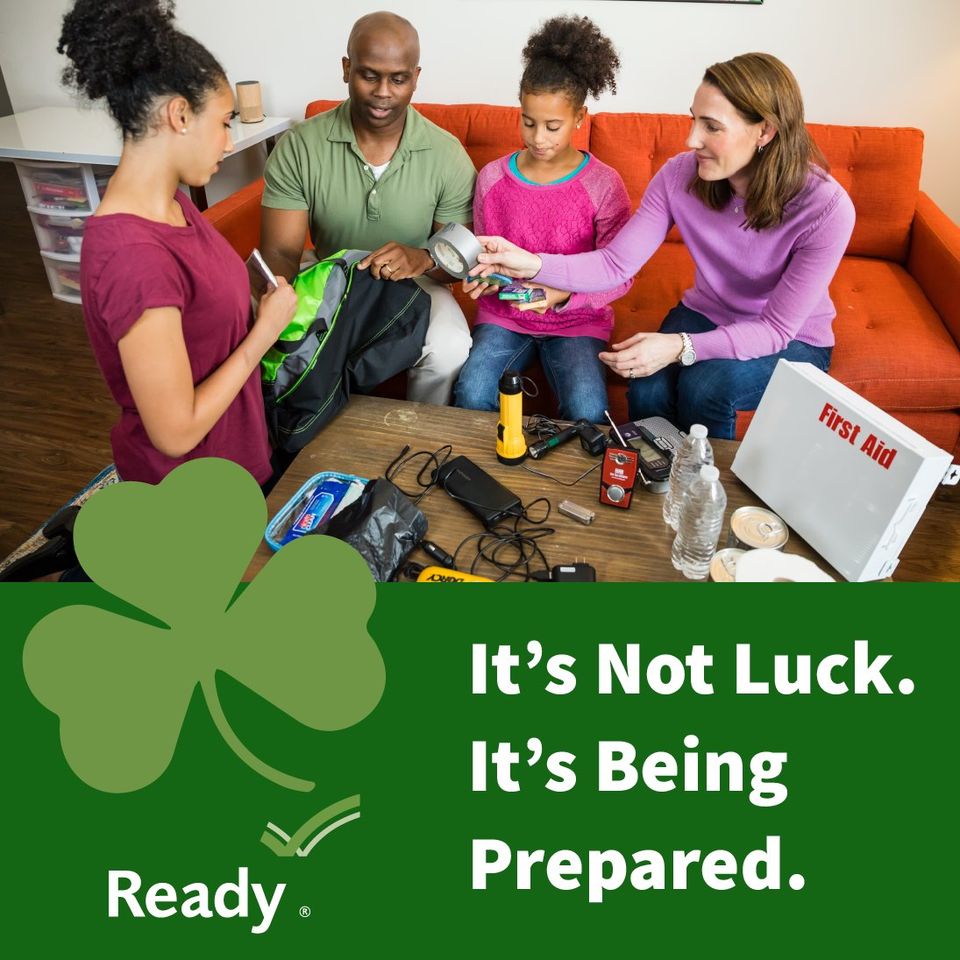
In the wake of recent storms, it is important to review your emergency plans and make sure you have at least one disaster kit and a “go bag”. A disaster supply kit is a collection of basic needs that can sustain your family for 72 hours in the event of an emergency, whether it be weather related, a natural disaster, or accident. It is recommended that you have a disaster kit available at your house, workplace, and in your car. A “go bag” has essential supplies that you will need if you evacuate. Every family member can have their own “go bag” including pets. Backpacks and even pillowcases can be used as “go bags”.
Disaster kits:
--------------------
While a kit should be stocked with several universal items to help meet basic survival needs, you will need to consider your family’s personal needs as well. Build your disaster kit over time. You don’t have to spend a lot of money. You can start with things you already have.
According to Ready.gov (https://www.ready.gov/kit), there are several common items that everyone should have when building their disaster kit:
• Water (1 gallon of water/person/day)
• Non-perishable food
• Weather Radio
• Flashlight
• First Aid Kit
• Extra Batteries
• Whistle
• Dust mask
• Plastic Sheeting and duct tape
• Moist towelettes, garbage bags, and plastic ties
• Wrench or pliers
• Manual can opener
• Cell phone with chargers and backup batteries.
To meet your family’s needs, consider adding these items to your disaster kit.
• Personal hygiene items including soap and disinfecting wipes.
• Prescription medication. All medication should be clearly marked and not expired.
• Prescription eyeglasses and contact lens solution.
• Infant formula, bottles, diapers, wipes and extra baby kids clothing.
• Pet food, extra water for your pet, and supplies to clean up after your pet.
• Cash or Visa Gift Cards (Banks and ATM’s may not be available).
• Important family documents such as copies of insurance policies, identification and bank account records saved electronically or in a waterproof, container. Also include your pet’s vaccination records and a photo of a family member with your pet in the event you are separated.
• Extra clothing for everyone in the family.
• Fire extinguishers.
• Matches in a waterproof container.
• Plastic utensils and paper towels.
• Books, games, puzzles, or other activities for children. Pet toys to help relieve anxiety for your pet(s).
For more information, visit FEMA’s Ready.gov (https://www.ready.gov/) website. Resources are available in several languages.
Holli Alley, Extension 4-H Associate
Nebraska EDEN Team